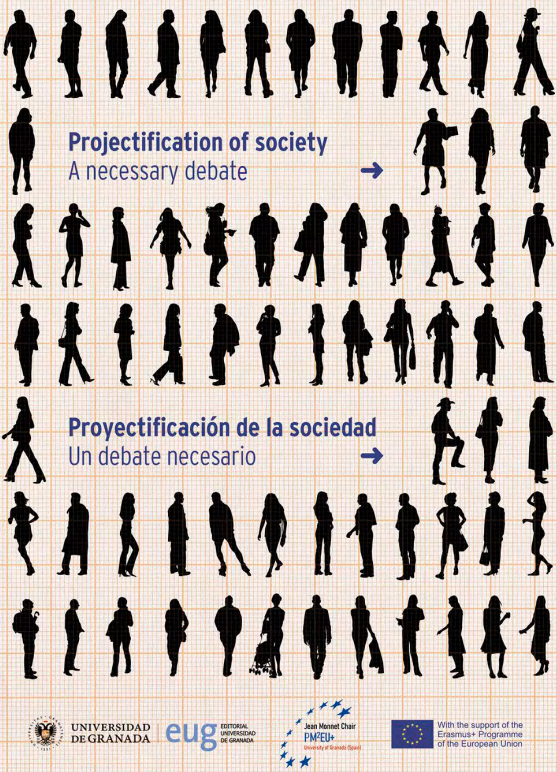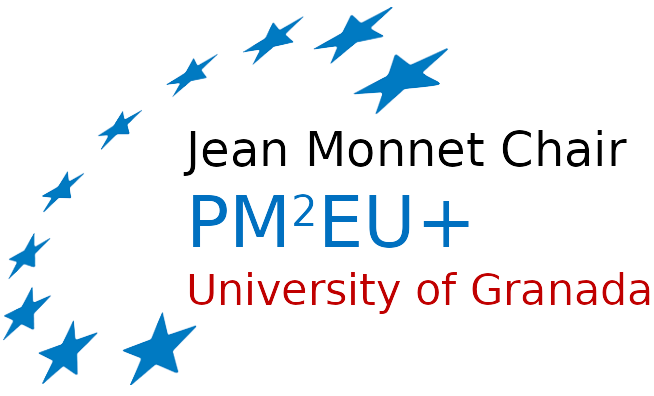The book, published by the official University of Granada editorial, is one of the most important activities of the Chair. It analyses the phenomenon of the projectification of society from different perspectives: economic, social, human, business, organisational and European.

The Chair has been able to work with a panel of international experts who have generously offered to collaborate in the book. This is the content and the amazing roster of collaborators:
Foreword. Germán Martínez Montes (Jean Monnet Chair Holder & Begoña Moreno Escobar Jean Monnet Academic Coordinator - University of Granada)
- Chapter 1. Projectification and economy. (Yvonne G. Schoper – University of Berlin)
- Chapter 2. Projectification and SME (Juan Manuel Dominguez - APGP)
- Chapter 3. Projectification and development (Agustín Moya & José Luis Yague - Polytechnic University of Madrid)
- Chapter 4. Projectification and the academia. (Javier Pajares - University of Valladolid)
- Chapter 5. Projectification and European Union (Mats Fred, Beata Jalocha & Dalia Mukhtar-Landgren - Jagiellonian University)
- Chapter 6. Determinants of the Negative Aspects of Projectification (Claudette El Hajj & Dima – NTU Lebanon; Dima Jawad – Ontario Tech University)
- Chapter 7. Projectification of society – a sociological perspective. (Reinhard Wagner - Alma Mater Europaea ECM, Maribor, Slovenia)
- Chapter 8. Key issues in the management of the project-based organization. (J. Rodney Turner - School of Civil Engineering, University of Leeds)
- Chapter 9: The dark side of projectification. (Yannick Kalff - Universität Osnabrück)
- Chapter 10. Projectification and PM Associations (Jesús Martínez Almela – International Project Management Association)
- Chapter 11. Projectification and Certifications (Salvador F. Capuz Rizo – Polytechnic University of Valencia)
While going through these chapters, the reader will be able to appreciate the wide range of literary styles employed by the authors, which have been respected in the editorial process. This has led to a publication made up of a whole host of styles, content and experiences; an extremely valuable document which creates a complete map of project management that includes its wealth of positive features and complexities.
The order of the chapters in no way reflects any form of hierarchy or relative importance. One of the lessons that has been learned during the creation of this publication is that project management and the projectification of society require a multidisciplinary approach. The convergence of economic, business, political, social, and of course, individual components are clear. Projectification is a very complex yet fascinating issue, and this publication has approached it as such.
The result has been a high quality publication that sets the basis for any debate related to projectification and how it should be managed in the next years in order to enhance the positive effects and reduce the negative ones.
An aditional effort has been made and the publication is presented in English and Spanish, thus reaching the widest possible audience.
We would like to thank all those who have made this publication possible, especially the University of Granada and the European Commission that has provided resources through the ERASMUS + Programme (Jean Monnet Actions).
Following the policy of generating open and free documents it is possible to download the e-book at the following link:
Projectification of Society: A necessary debate

